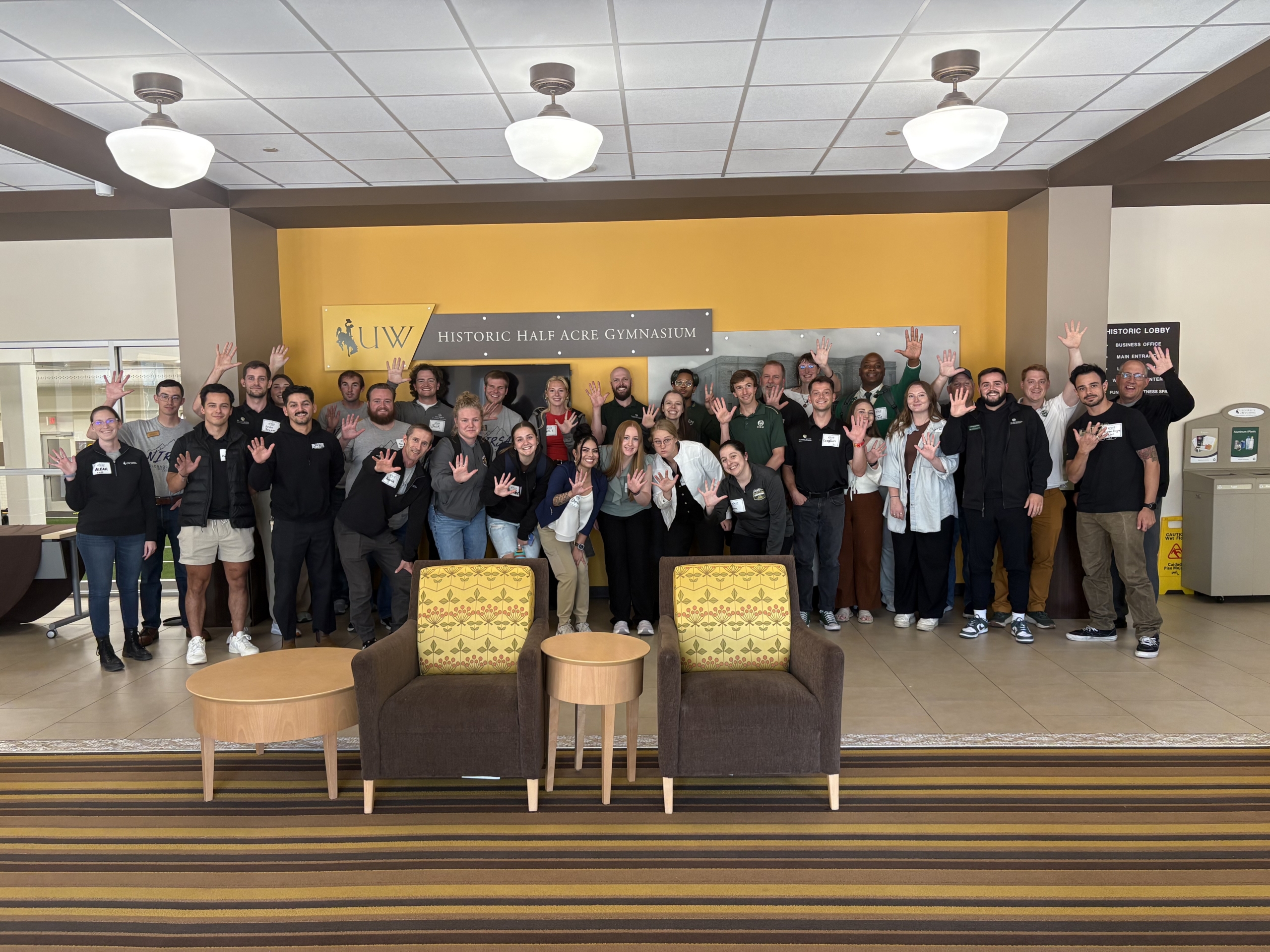“I didn’t know you could get a full-time job _____ .“ (Fill in the blank … officiating intramurals, leading outdoor recreation trips, teaching personal training sessions, managing a service center, and so on and so on and so on.)
I wish I could count the number of times I’ve heard this statement over the years when colleagues are describing their journey in collegiate recreation. As I reflect on my entry into the recreation field, my discovery was much the same. From my first ‘real’ job setting up children’s birthday parties at the amusement park near where I grew up (which I was fired from but that’s another story) to the junior recreation supervisor position during college summers (when I ended up with nine stitches in my knee from a door hinge while playing round-robin ping pong – also another story!), it wasn’t until I attended my first NIRSA conference that I realized you really could make a career out of helping people play. Of course another thing I’ve heard many times over the years, as we probably all have when trying to describe what we do, has been “Oh, that sounds like a such fun job.” And yes, it is a fun job. But we also work diligently so others can enjoy their pursuit.
I started my college recreation life as a student playing intramural sports, then officiating, lifeguarding, working in the intramural office, and helping to pass a student fee referendum. But not until my first fateful NIRSA conference did I have a clue that I would be headed down the path of working full-time on a college campus in recreation.
Back in the day, recreation programs were small, usually only intramural sports and some drop-in recreation provided in facilities that weren’t otherwise occupied by physical education classes, athletic practices and competitions, and scheduled intramural sports activities. Dedicated recreation centers were few and far between. Now recreation centers on college campuses are much more prevalent and campus recreation programs consist of more than just “throwing the ball out.” With all the various programs currently offered, strong efforts devoted to development of both participants and employees through learning outcomes, along with assessments and valuable research that has been conducted in recent years, recreation is no longer the second-class program it once was. Collegiate recreation has been elevated to a new and more respected position on college campuses.
A collective effort across the country didn’t come without leadership of a professional association. NIRSA has been the driving force behind moving recreation to new heights. I personally have benefitted so profoundly from my connection with NIRSA … education, resources, collegial relationships, personal acquaintances, friendships, the opportunity to give back by presenting and contributing on committees, and participation at higher leadership levels. I wouldn’t trade any of it. I’ve learned so much, done so much, and received back so much more.
Two of my recent and most enjoyable NIRSA activities include participation on the faculty of the National School of Collegiate Recreation and the NIRSA Foundation Board. I have a passion for supporting and inspiring students and professionals so these two leadership roles were able to both feed my desire to help and at the same time provide a benefit to NIRSA members. I currently chair the NIRSA Foundation Board Legacy Society subcommittee as we work to encourage NIRSA members to consider leaving a piece of their estate to the Foundation which will in turn benefit the association that has brought us all so much.
So to conclude with a piece of advice … take every opportunity to participate, get involved, acquire knowledge, assist, enjoy! You’ll never be sorry!
-Loretta Capra




